
Zionism is an ethnocultural nationalist movement that emerged in Europe in the late 19th century and aimed for the establishment of a national home for the Jewish people through the colonization of Palestine, an area roughly corresponding to the Land of Israel in Judaism, and of central importance in Jewish history. Zionists wanted to create a Jewish state in Palestine with as much land, as many Jews, and as few Palestinian Arabs as possible.

Michael Bornstein Oren is an American-Israeli diplomat, essayist, historian, novelist, and politician. He is a former Israeli ambassador to the United States (2009–2013), former member of the Knesset for the Kulanu party and a former Deputy Minister in the Prime Minister's Office.
National conservatism is a nationalist variant of conservatism[definition under discussion] that concentrates on upholding national, cultural identity, communitarianism and the public role of religion. It shares aspects of traditionalist conservatism and social conservatism, while departing from economic liberalism and libertarianism, as well as taking a more pragmatic approach to regulatory economics and protectionism. National conservatives usually combine conservatism with nationalist stances, emphasizing cultural conservatism, family values and opposition to illegal immigration or opposition to immigration per se. National conservative parties often have roots in environments with a rural, traditionalist or peripheral basis, contrasting with the more urban support base of liberal conservative parties.
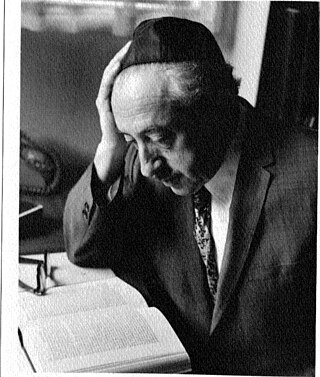
Eliezer Berkovits was a rabbi, theologian, and educator in the tradition of Orthodox Judaism.

Azure: Ideas for the Jewish Nation was a quarterly magazine published 1996–2012 by the Shalem Center in Jerusalem, Israel. It published new writing on issues relating to Jewish thought and identity, Zionism, and the State of Israel. It was published in both Hebrew and English, allowing for the exchange of ideas between Israelis and Jews worldwide.
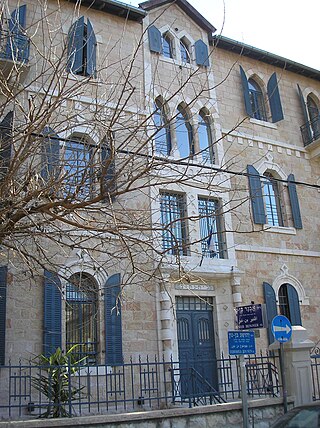
The Shalem Center was a Jerusalem research institute that supported academic work in the fields of philosophy, political theory, Jewish and Zionist history, Bible and Talmud, Middle East Studies, archaeology, economics, and strategic studies.
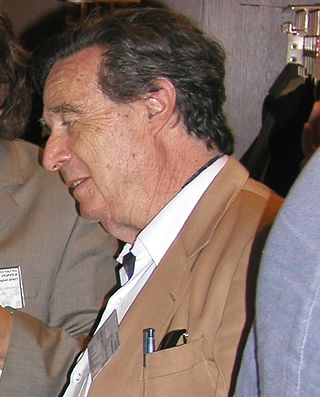
Joseph Agassi was an Israeli academic with contributions in logic, scientific method, and philosophy. He studied under Karl Popper and taught at the London School of Economics.
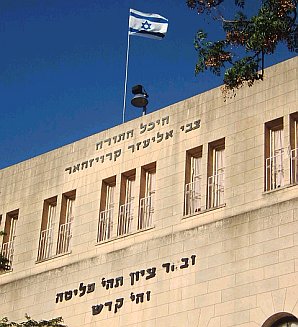
From the founding of political Zionism in the 1890s, Haredi Jewish leaders voiced objections to its secular orientation, and before the establishment of the State of Israel, the vast majority of Haredi Jews were opposed to Zionism, like early Reform Judaism, but with distinct reasoning. This was chiefly due to the concern that secular nationalism would redefine the Jewish nation from a religious community based in their alliance to God for whom adherence to religious laws were "the essence of the nation's task, purpose, and right to exists," to an ethnic group like any other as well as the view that it was forbidden for the Jews to re-constitute Jewish rule in the Land of Israel before the arrival of the Messiah. Those rabbis who did support Jewish resettlement in Palestine in the late 19th century had no intention to conquer Palestine and declare its independence from the rule of the Ottoman Turks, and some preferred that only observant Jews be allowed to settle there.
David Brog is the former executive director of Christians United for Israel (CUFI), an American pro-Israel Christian organization, and a conservative activist.

Theodor Herzl was an Austro-Hungarian Jewish journalist, lawyer, writer, playwright and political activist who was the father of modern political Zionism. Herzl formed the Zionist Organization and promoted Jewish immigration to Palestine in an effort to form a Jewish state. Due to his Zionist work, he is known in Hebrew as Chozeh HaMedinah, lit. 'Visionary of the State'. He is specifically mentioned in the Israeli Declaration of Independence and is officially referred to as "the spiritual father of the Jewish State".
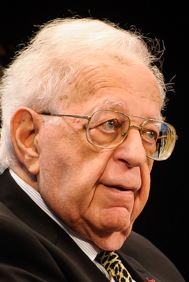
Shlomo Avineri was an Israeli political scientist. He was a professor of Political Science at the Hebrew University of Jerusalem and member of the Israel Academy of Sciences and Humanities. He also served as a recurring visiting professor at the Central European University in Budapest, and as a fellow at Munich-based academic think tank Centrum für angewandte Politikforschung, offering advice to politicians. Avineri died on 30 November 2023 at the age of 90.

David Yair Hazony is an American-born Israeli writer, translator, and editor. He was the founding editor of The Tower Magazine from 2013 to 2017, and from 2017 to 2020 served as executive director of the Israel Innovation Fund. He currently is an independent editor with Wicked Son Books.

Asa Kasher is an Israeli philosopher and linguist working as a Professor at Tel Aviv University. He is the lead author of the IDF Code of Ethics.

The Princeton Tory is a magazine of conservative political thought written and published by Princeton University students. Founded in 1984 by Yoram Hazony, the magazine has played a role in various controversies, including a national debate about white privilege. Notable alumni associated with the magazine include United States Senator Ted Cruz and Wendy Kopp, the founder of Teach for America. Four editors have gone on to be Rhodes scholars.

Menachem Kellner is an American-Israeli academic and Jewish scholar of medieval Jewish philosophy with a particular focus on the philosophy of Maimonides. He is a retired Professor of Jewish Thought at the University of Haifa and is the founding chair of the Department of Philosophy and Jewish Thought at Shalem College in Jerusalem. He has taught courses in philosophy, religious studies, medieval and modern Jewish philosophy at Washington University in St. Louis, the College of William & Mary, the University of Virginia, and the University of Haifa. He is probably best known for his book Must A Jew Believe Anything?, which was a Koret Jewish Book Award finalist.
Yoram is a given name derived from Jehoram, meaning "Jehovah is exalted" in Biblical Hebrew, which was the name of several individuals in the Tanakh; the female version of this name is Athaliah. Notable people with the name include:

Events in the year 1929 in the British Mandate of Palestine.
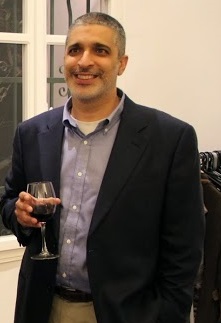
Ofir Haivry is an Israeli political philosopher and historian. He is currently Vice President at The Herzl Institute - Machon Herzl in Jerusalem, Head of the Center for Study of The Dispersed of Israel at Yad Ben Zvi, Member of the Board at Edmund Burke Fundation (Washington) and Chairman of the Working Group for Conservatism in Europe (WoCE). He was one of the founders of The Shalem Center, one of the founders of Shalem College, and founding editor-in-chief of the journal Azure: Ideas for the Jewish Nation.

The Virtue of Nationalism is a 2018 book by Israeli-American political theorist Yoram Hazony.
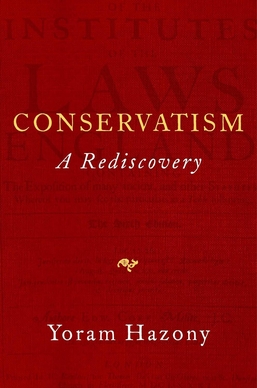
Conservatism: A Rediscovery is a 2022 book by Israeli political philosopher Yoram Hazony. It outlines his philosophy of national conservatism by examining its history, legal tradition, and philosophical commitments. He outlines the history of a distinctive Anglo-American tradition of political conservatism which he argues should be restored and renewed in order to meet the challenges of the current age.

















